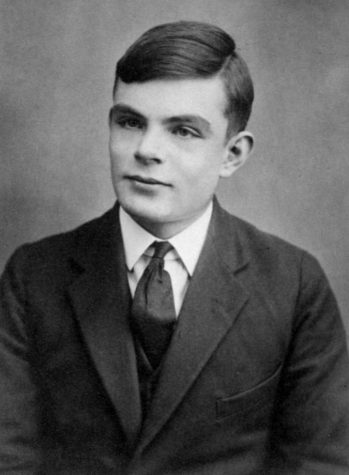Why is Alan Turing Not as Famous as He Should Be?

Passport photo of Alan Turing at age 16
Taken from Turing Archives
For decades, Alan Turing (1912 – 1954) may have been one of the most underappreciated scientists on Earth. Not only was Turing arguably the most important figure in the development of computers, but he also had a massive influence on the outcome of the Second World War through his work in codebreaking. Despite this, his accomplishments went largely unrecognized, largely due to two reasons discussed below. This was the case until 55 years after his passing when then British Prime Minister Gordon Brown issued a formal apology for “the appalling way [Turing] was treated”. In this article, I will be exploring and celebrating what he did for society, as well as answering the question: ‘Why is Alan Turing not as famous as he should be?’
Turing’s childhood was complicated. From a young age, the majority of his teachers recognized his immense talent, especially in mathematics. However, his complete focus only on the courses which he was interested in led to a number of conflicts with the education system at the time, which put an equally large or perhaps even larger emphasis on courses in languages, arts, and culture (compared to maths and sciences).
Furthermore, a critical moment in his life occurred in February of 1930, when Turing’s closest friend Christopher Morcom passed away from tuberculosis. At just the age of 18, this came as a major shock to him, especially given that he did not have many friends at the time. He mentioned Morcom in his letters for years after the event. Nonetheless, Turing’s incredible abilities in mathematics gave him to a place at King’s College at the University of Cambridge. Turing excelled in higher education, where he was awarded first-class honors in mathematics and was ultimately elected a fellow at the college for his incredible dissertation.
According to Professor Jack Copeland, professor at the University of Canterbury, his work during the Second World War shortened the war by approximately two to three years, saving the lives of between 14 to 21 million people. On September 4th, 1939, Turing reported to Bletchley Park, the confidential center of code-breaking for the Allies. His task was to attempt to break a supposedly ‘unbreakable encryption system’ used by the German army to send their top-secret information to one another. In about five and a half months, Turing and his team managed to develop a machine that could decipher the messages. Although they did not quite know it yet, this was one of the first systems to resemble the computer. Through decrypting these instructions, the Allies were able to know the planned actions of the opposition before they made them, which allowed them to defend against numerous attacks. However, important to note was that all of his feats during this time was hidden from the public under the Official Secrets Act (which was a UK legislation enacted after the war that protected what was considered to be private government information), and was only revealed decades later.
Following the war, Turing pursued his interest in computing, and in 1948 helped develop the ‘Manchester computers’, some of the first of their kind. He also began to think about the idea of artificial intelligence, which is a massive field today. He devised a test that could be used to determine whether a computer acted indistinguishably like a human being, known as the ‘Turing Test’. This is one of his most famous accomplishments, which is especially incredible considering how he came up with it at a time when computers were just beginning to develop at a fast pace.
However, his life was unfortunately cut short just six years after this. In 1952, two years before his death, Turing was prosecuted for “gross indecency” due to being a homosexual, which was a criminal offense at the time. Faced with the decision of going to prison or receiving a chemical castration treatment (which was later found to be incredibly harmful to anyone who underwent it), he selected the latter. On June 7th, 1954, Turing was found dead from cyanide poisoning. His death is highly disputed, with the original investigations claiming it to be a suicide, but other later inquiries showing evidence of his death being an accident (caused by consuming a fatal dose of poisonous chemical).
Reflecting back, Turing went largely undervalued for years after his death, primarily due to the Official Secrets Act and his sexual orientation at a time when being a homosexual was considered illegal. Fortunately, that is no longer the case today. Since the official apology in 2009, his accomplishments have finally been properly acknowledged. Queen Elizabeth II gave Turing a posthumous pardon in 2013, and is now often known as ‘the father of computing’. In July of this year, it was announced that Turing would be on the UK’s new £50 note. Multiple tributes of him were created in educational institutions around the world, the most famous one likely being the famous computer room at King’s College, Cambridge being called ‘The Turing Room’. He was also featured in numerous documentaries (such as the 2019 BBC series Icons: The Greatest Person of the 20th Century). To learn more about his work, I would recommend watching the 2014 film The Imitation Game.




